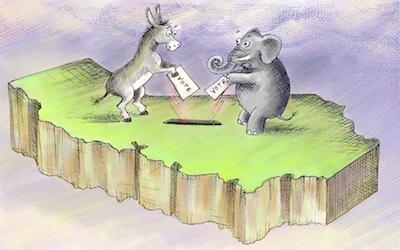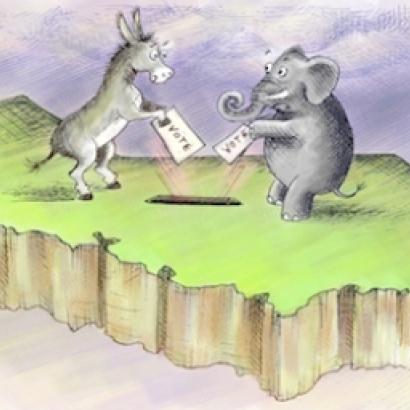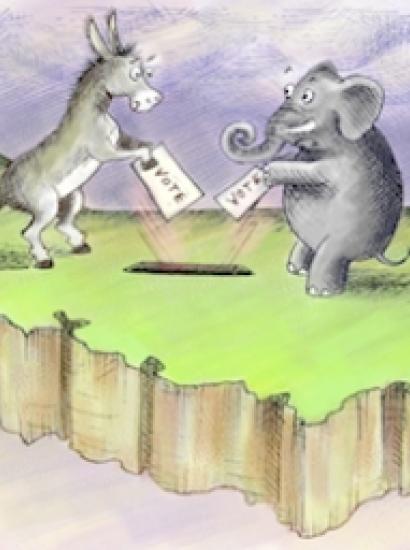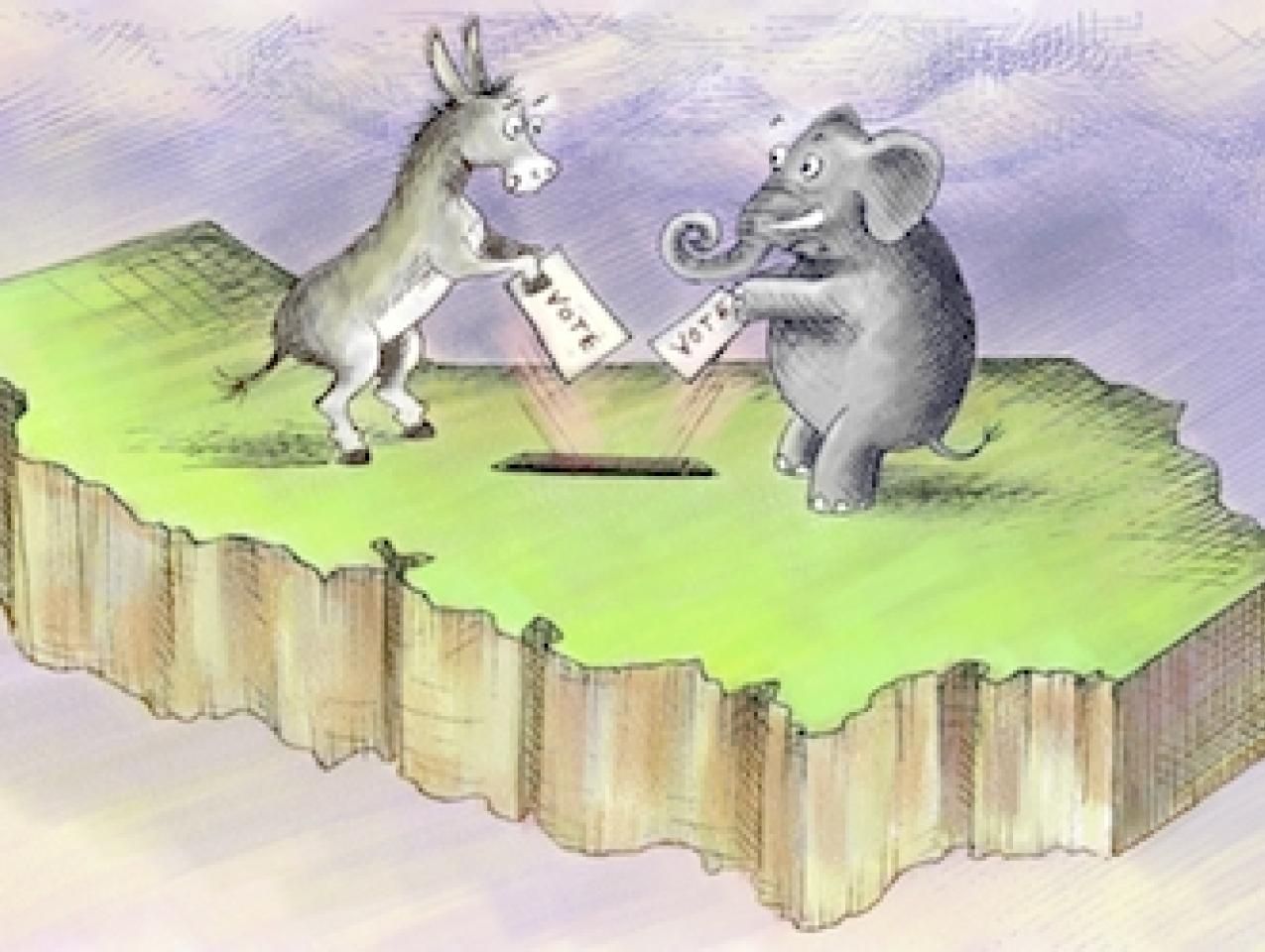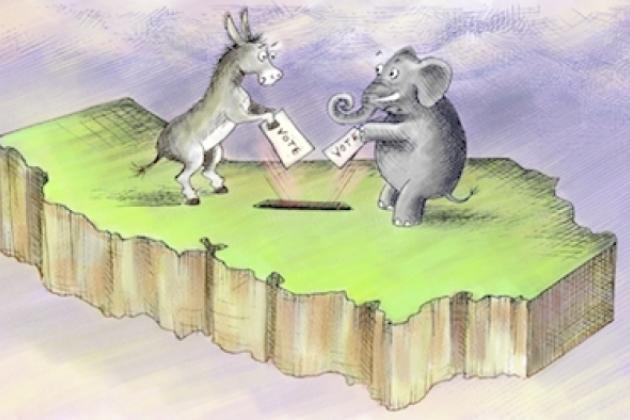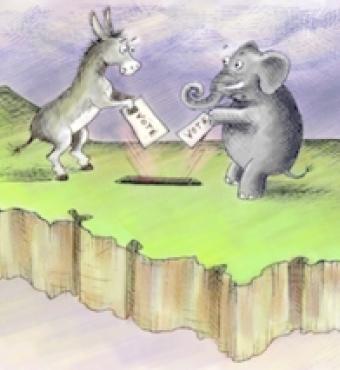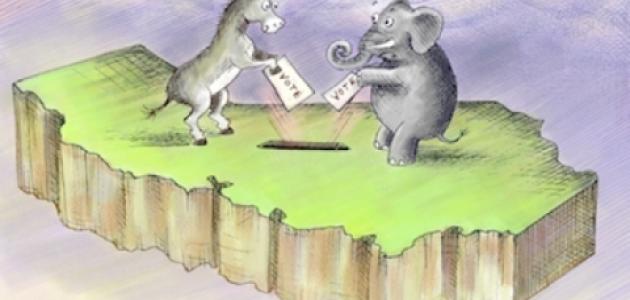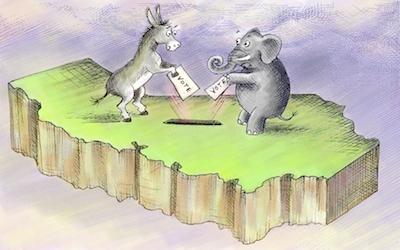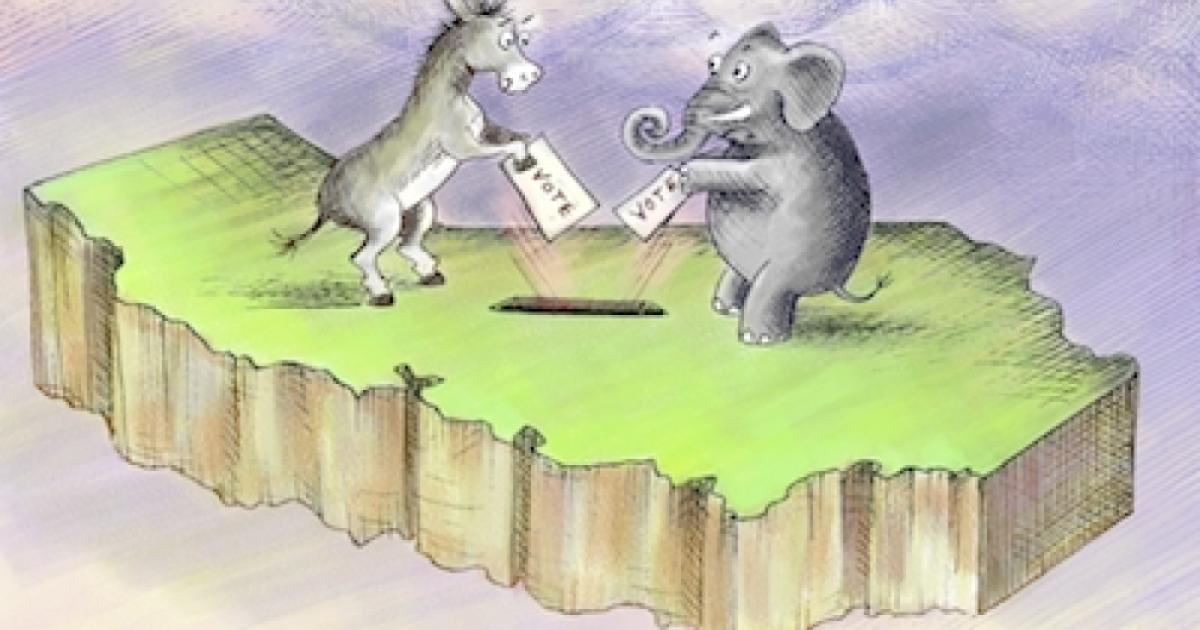- Politics, Institutions, and Public Opinion
- Campaigns & Elections
- State & Local
Earlier this week, too much fanfare, it was announced that Governor Jerry Brown and his Republican challenger, Neel Kashkari, will meet for this election season’s only gubernatorial debate on September 4, which also happens to be the same evening as the 2014 NFL season kick-off.
Kashkari had challenged Brown to 10 debates (just like Brown did, in 2010, to Republican Meg Whitman). In electoral politics, it is the underdog who does the challenging and it is the candidate with the upper-hand who sets the debate schedule. 2014 is no different.
Compared to past debates – Hoover research fellow Bill Whalen, at A Day At the Races, has a nice history of past gubernatorial debates – the Brown vs. Kashkari match-up is to be held particularly early (the beginning of September versus mid-October). This and setting the date on the same night as the Seahawks vs. Packers game is, of course, a strategic move on Jerry Brown’s part. 1) Few Californians will be paying attention to politics in early September, 2) even fewer will choose to watch a political debate over a football game, and 3) if Brown does flub the debate, he has two months to recover (if anyone actually even notices).
But while the strategic date setting helps Brown, it does do a great disservice to Californians. At a time when 46% of Californians believe California is heading in the wrong direction and 47% disapprove of the state legislature’s performance, it is unfortunate that Californians only get one, scantly watched gubernatorial debate.
There is an alternative, though. Founded in 1987, the Commission on Presidential Debates has ensured that the past seven presidential elections have held professional and permanent general election debates to educate voters on the candidate’s positions and visions. It is a non-partisan, non-profit that has no agenda beyond organizing debates. And they have been successful. In 2012, for instance, on average 64 million Americans tuned into the three general election Presidential debates held in October 2012. This represents roughly half the number who ended up voting in November. Recently, the Commission has planned three Presidential debates (with one being a town-hall format) largely focusing on different major topics (domestic versus foreign policy). They have also organized one Vice Presidential debate.
California’s economy consistently ranks among the ten largest in the world. It is the nation’s largest state, both in terms of population and gross domestic product. And the Golden State is, typically, a trend-setter for national public policy. California’s governors, if constitutionally eligible, are always looked upon as potential Presidential candidates. But yet, for the most part, Californians only knowledge of candidate positions and visions is from expensive paid advertising.
Creating a non-partisan, non-profit California Statewide General Election Debate Commission could fix this. Here’s one way it could work:
- Form a bi-partisan Board of Directors of former and current California policy and political leaders that would hire and oversee three Debate Commissioners – one, each, being a Democrat, Republican, and NPP.
- The Commissioners would organize two gubernatorial debates and one debate each for the other seven statewide offices (Lieutenant Governor, Attorney General, Secretary of State, State Treasurer, State Controller, Superintendent of Public Instruction, and Insurance Commissioner) throughout the end of September and early October – to coincide with vote-by-mail ballots hitting doorsteps – with the gubernatorial debates occurring at the beginning and end of the timeframe.
- The two gubernatorial debates should be held in different parts of the state (north vs. south or coastal vs. inland) and focus on distinct policy categories (possibly, fiscal issues vs. non-fiscal or one be focused entirely on an important issue facing the state in that particular election year – for instance, the drought).
- The remaining seven statewide office debates should be held on neutral territory (i.e. not in areas of either candidate’s political bases) and focus on issues affecting that particular office (the Lieutenant Governor’s debate would likely mirror an abridged version of the two gubernatorial debates).
- Debates should be moderated and candidates should be given enough time to go into detail on their proposals. Moderators should be willing to press candidates to answer the questions as detailed as possible preventing platitudes and generalities.
Voters should be given the chance to inform themselves as much as possible, but unfortunately, in a state as expensive to advertise as California is, candidate information is typically one-sided and incomplete. Well-moderated debates are a way to increase voter awareness. It’s anyone’s guess whether Californians will actually tune in to watch or listen to the Commission’s debates, but one thing is certain, the situation can’t be any worse than it is now.
Hoover Institution research fellow Carson Bruno studies California's political and policy landscape.
Follow him on Twitter: @CarsonJFBruno







